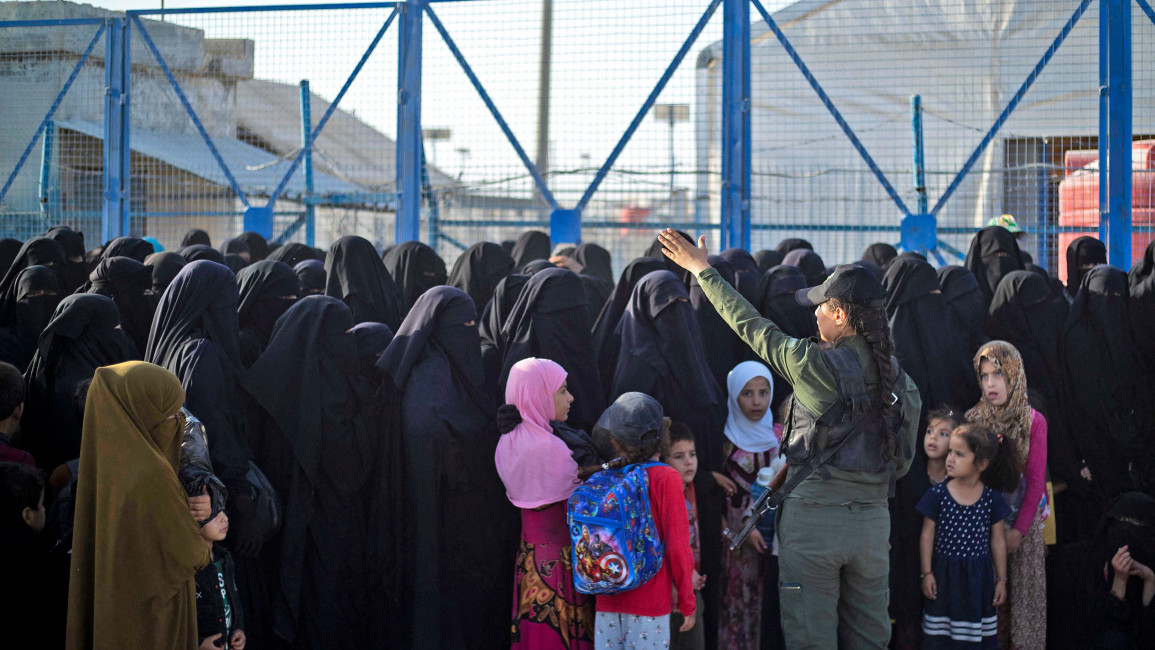UK repatriates mother and her child from Syria, first adult taken back since IS fall
The British government has repatriated a woman and her child from Syria, human rights group Reprieve said Thursday.
London has previously repatriated British children from Syria, but the mother repatriated this week is the first adult the UK has taken back since the fall of the Islamic State group in the country in 2019.
"We welcome the government’s decision to repatriate this British woman and her child. This woman was a victim of trafficking, taken to Syria by a male relative when she was a young girl," Reprieve director Maya Foa was quoted as saying in a statement sent to The New Arab.
Jonathan Hargreaves, the UK's Representative to Syria, said in a tweet Wednesday evening that two British nationals had been repatriated from the country.
"In line with longstanding policy we consider each request for consular assistance in Syria on a case by case basis," the tweet from Hargreaves read, offering no further information on the repatriated British nationals.
|
The New Arab contacted the UK Foreign Office for more information on the case, but did not receive a response by the time of publication.
Some 60,000 people are living in the Al-Hol and Roj detention camps in Syria's northeast, most of whom moved to or were sent there during the last months of the Islamic State's so-called caliphate.
Roughly 10,000 residents of the two camps are nationals of countries other than Iraq or Syria; about 60 are British nationals.
Human rights groups have implored countries to take their citizens back from the squalid camps.
While governments in some parts of the world, including the Balkans and Central Asia, were quick to repatriate their citizens, others, including the UK, have put up years of resistance, citing security concerns.
In their statement, Reprieve urged the UK to speed up the repatriations.
"Our research shows that the majority of the British women being held in prison camps in north-east Syria were trafficked by ISIS for sexual exploitation and domestic servitude. Rather than reckon with their cases, the government has chosen to abandon them in life-threatening conditions," Foa said.
"The UK should follow the example of allies including the US, France, Germany and the Netherlands and repatriate all British families from unlawful detention.”
In one of the more high-profile cases involving the UK, Shamima Begum, who was 15 when she travelled from London to Syria in 2015, was stripped of her British citizenship last year.
Investigations revealed in August that a spy working for Canadian intelligence had helped Begum and two other British schoolgirls travel across Turkey's border with Syria.



